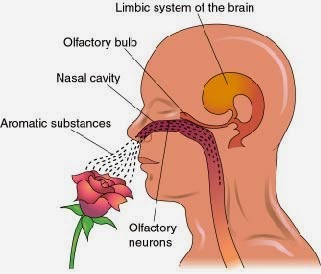Essential oils are considered the ‘life blood’ of the plant, and for good reason. Essential oils are literally a plant's natural medicine against bacteria, viruses, and diseases that attack its cells. These extracts from plants are 50 to 70 times more powerful than herbs.
It's important to realize our bodies and plants have very similar building blocks. So, when we take these essential oils into our bodies they are in a familiar environment and they go to work on our behalf just as they would for the plant, killing bacteria, inhibiting virus reproduction, cleansing toxins, destroying parasites, oxygenating our cells and boosting our immune system.
It's important to realize our bodies and plants have very similar building blocks. So, when we take these essential oils into our bodies they are in a familiar environment and they go to work on our behalf just as they would for the plant, killing bacteria, inhibiting virus reproduction, cleansing toxins, destroying parasites, oxygenating our cells and boosting our immune system.
Today we will be exploring the benefits of using essential oils aromatically - the most widely recognized benefit of essential oils. Don't forget to read about the topical ad internal benefits of essential oils.
Aromatic Benefits of Essential Oils
Essential oils, by nature, have a strong odor associated with them. Besides smelling nice, they can clean the air, destroying both odors and toxins. A whiff of lavender releases feel-good hormones and makes us happier, and a hint of eucalyptus improves alertness. Smells can impact many things in our lives, from dreams and emotions, to stress, pain, concentration, memory and romance.How Does It Work?
When essential oils are inhaled, they enter the body via the olfactory system, which has a direct connection to the limbic system in the front of the brain. The limbic system is known as the primitive brain and it encircles the top of the brain stem and forms a border linking cortical and midbrain areas with lower centers that control automatic, internal body functions.
It is associated with feelings such as hunger, thirst, anger, sadness, sexual arousal and pleasure. It is also associated with creativity, learning and memory. This is one of the reasons why so often something that we smell will trigger a memory or remind us of something or someone. (Source: Aroma-Pure)
Dreams
Experiencing floral smells before sleep, such as lavender and chamomile, can lead to more positive dreams. In research at the Sleep Disorders Centre of the University of Heidelberg, men and women were exposed to either the smell of flowers or hydrogen sulphide, or to no smell at all. Results show that the emotional content of subsequent dreams was linked to the smell. Those who had the floral smell had significantly more pleasant dreams than those who had no smell and the people exposed to the sulphur smell had the most negative dreams. Researchers are now looking at whether pleasant smells could reduce the risk of nightmares.Insomnia and Stress
Clinical trials have shown that the smell of lavender can help in insomnia, anxiety, stress, and post-operative pain, according to a report from Maryland University. "There is now scientific evidence to suggest that aromatherapy with lavender may slow the activity of the nervous system, improve sleep quality, promote relaxation, and lift mood in people suffering from sleep disorders," say the researchers. A study at Tubingen University in Germany shows that vanilla fragrance has a calming effect, while a Thailand study showed the smell from roses reduces both breathing rate and blood pressure.Concentration
Peppermint and lavender have been found to aid in concentration. Spraying the scent of lavender during factory tea breaks in Japan has been shown to improve post-break production. Athletes who sniffed peppermint ran faster and had better concentration than those who had no smell.Memory
Smells are very powerful triggers of specific memories, and are used in therapy to help recover lost memories. Research at Toronto University shows that memories triggered by smells tend to be clearer, more intense and more emotional. One theory is that this is because the part of the brain that processes smell has direct links with parts that are involved in emotion and memory.Blood Sugar Levels
In a study carried out at Cardiff University, insulin was injected into healthy men once a day for four days and their blood glucose levels fell. Each time they were injected, they were exposed to a smell, but on the fifth day the men were just given the smell... and their blood glucose still fell.
Studies can be cited from the original source at saga.co.uk


No comments:
Post a Comment